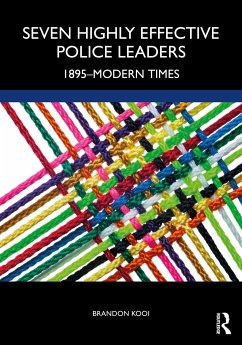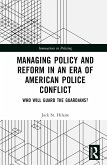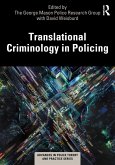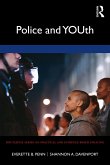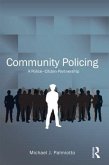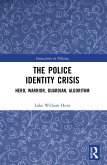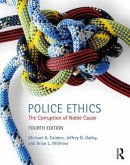This book provides a valuable addition to the policing literature by detailing the backgrounds and histories of seven important police leaders: Teddy Roosevelt, August Vollmer, O.W. Wilson, Penny Harrington, Bill Bratton, Chuck Ramsey, and Chris Magnus.
Seven Highly Effective Police Leaders teaches important history, highlighting the impact on the evolution of American policing by academia and social science. Each historical biography demonstrates the importance of each leader's decision-making and how it continues to shape the future of U.S. law enforcement. Readers are informed about each police leader's background and how their leadership was shaped by the political and historical environments in which they led.
The book is useful for educational courses in policing, American history, leadership, and strategic planning. Additionally, the general public will find this book insightful regarding contemporary mass social justice protests linked to the unique history of the United States.
Seven Highly Effective Police Leaders teaches important history, highlighting the impact on the evolution of American policing by academia and social science. Each historical biography demonstrates the importance of each leader's decision-making and how it continues to shape the future of U.S. law enforcement. Readers are informed about each police leader's background and how their leadership was shaped by the political and historical environments in which they led.
The book is useful for educational courses in policing, American history, leadership, and strategic planning. Additionally, the general public will find this book insightful regarding contemporary mass social justice protests linked to the unique history of the United States.
'In the United States at any one time, there are tens of thousands of police chiefs, and hundreds of thousands have served since American police departments were created. Among them all, the seven chiefs, plus the two scholars, featured in this book, individually and collectively, have had an outsized influence on what American policing is today. August Vollmer personally influenced O.W. Wilson, who personally influenced Herman Goldstein, who personally influenced George Kelling, who personally influenced Bill Bratton. I can attest to this intellectual inheritance because I, too, was personally influenced by Goldstein, and thus my own work as a police chief was, in attenuated but real ways, influenced by all these remarkable chiefs and scholars who preceded me and my contemporaries. For all who are interested in how our society is policed, their stories are very much worth knowing.'
Michael S. Scott, Clinical Professor and Director, Center for Problem-Oriented Policing, Arizona State University
'Professor Kooi uses the biographies of seven past and present police leaders to weave his way through the history of American policing and many of the key issues we continue to face today. His magnificent seven might or might not be the greatest police chiefs of all time (that can be debated, endlessly), but their lives and accomplishments deserve to be known far and wide.'
Gary Cordner, Former Commissioner of CALEA "Commission on Accreditation for Law Enforcement Agencies", Professor Emeritus- Kutztown University of Pennsylvania and Eastern Kentucky University, Past President Academy of Criminal Justice Sciences (ACJS)
Michael S. Scott, Clinical Professor and Director, Center for Problem-Oriented Policing, Arizona State University
'Professor Kooi uses the biographies of seven past and present police leaders to weave his way through the history of American policing and many of the key issues we continue to face today. His magnificent seven might or might not be the greatest police chiefs of all time (that can be debated, endlessly), but their lives and accomplishments deserve to be known far and wide.'
Gary Cordner, Former Commissioner of CALEA "Commission on Accreditation for Law Enforcement Agencies", Professor Emeritus- Kutztown University of Pennsylvania and Eastern Kentucky University, Past President Academy of Criminal Justice Sciences (ACJS)

